There are four species of beautiful corydoras, which are practically without exception available as wild collected specimens from Brazil, because even experienced breeders have a hard time with them. In addition, these species occur in masses and can therefore be offered in large numbers and very cheaply, so there is little incentive to breed them. After all, sustainable natural harvests make more ecological sense than captive breeding and provide local people with an environmentally sound, secure income.
These four species we are talking about here are Corydoras agassizii, C. ambiacus, C. schwartzi and C. sodalis. Unfortunately, they are repeatedly given wrong names. A portrait of Cordoras schwartzi can be found here: https://www.aquariumglaser.de/en/fish-archives/corydoras-schwartzi-2/
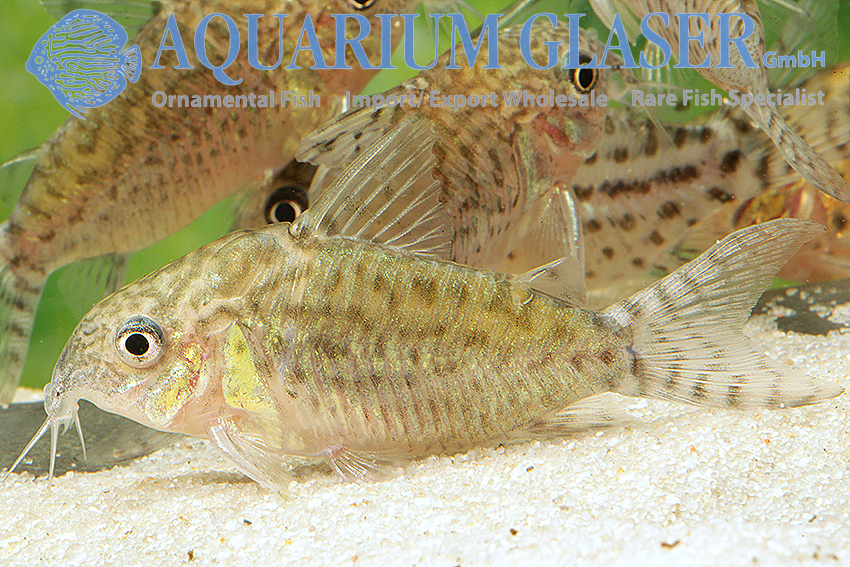
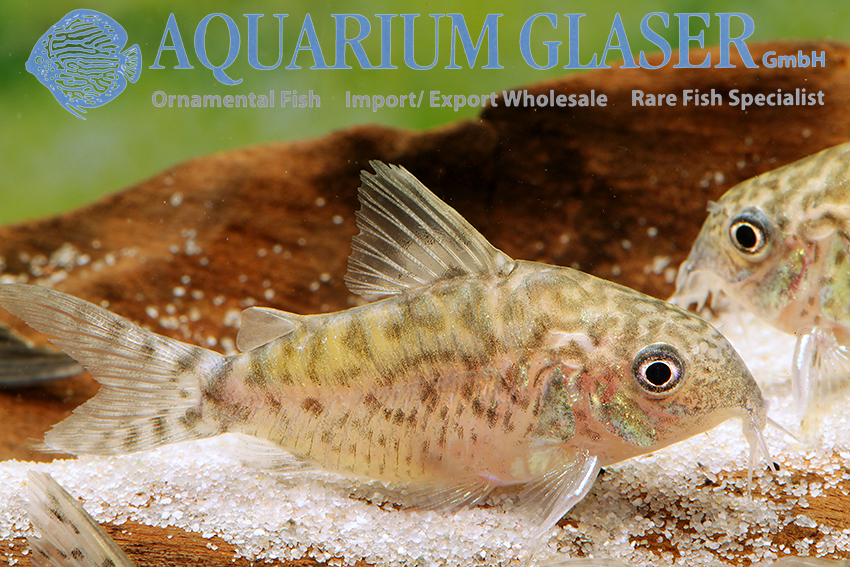
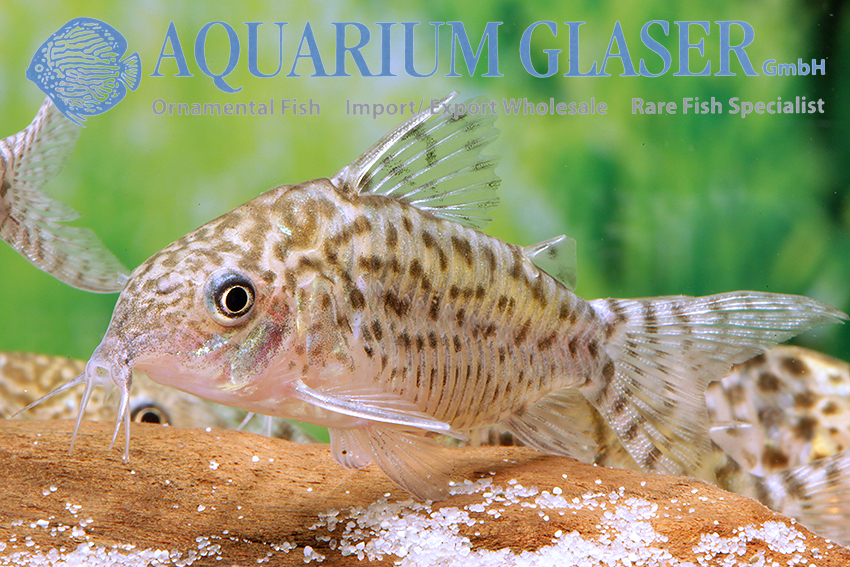
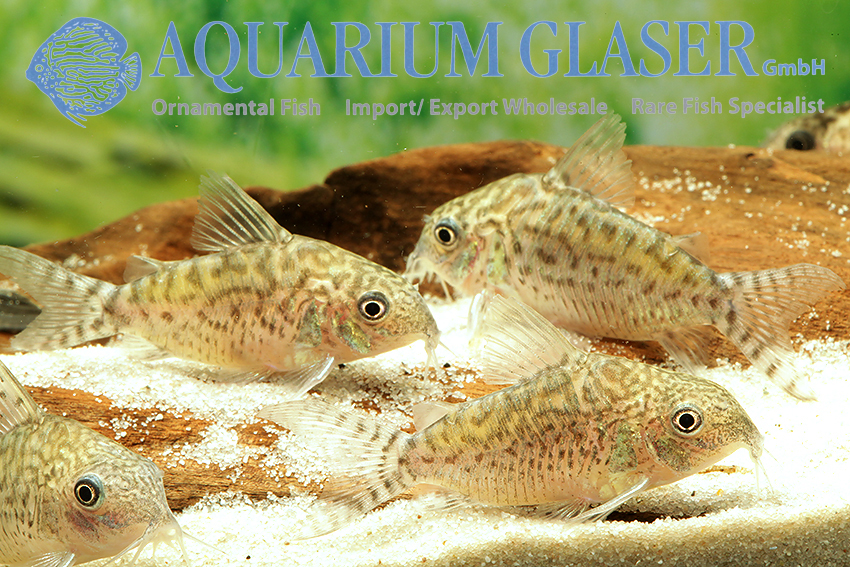
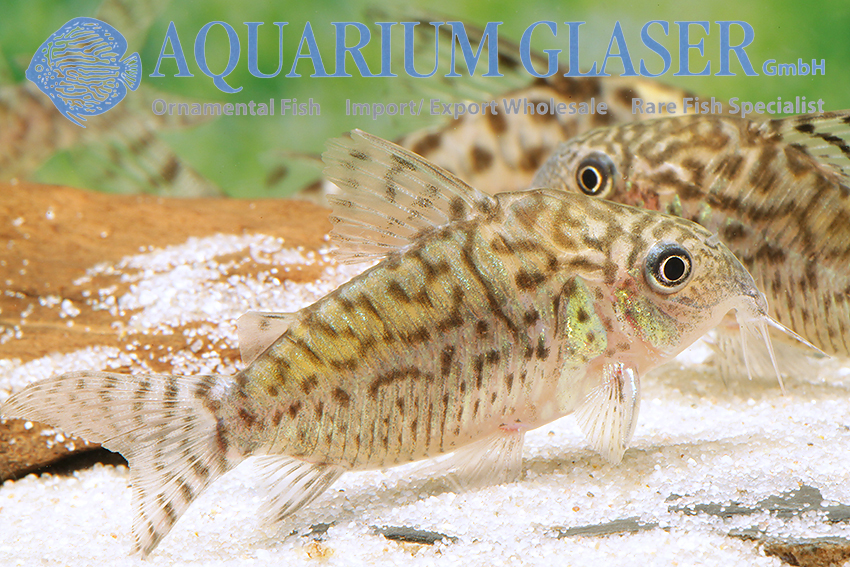
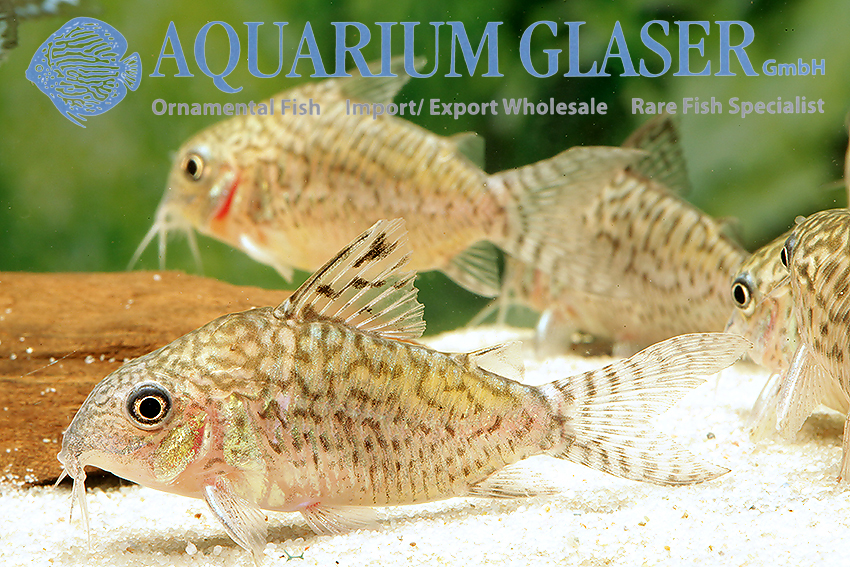
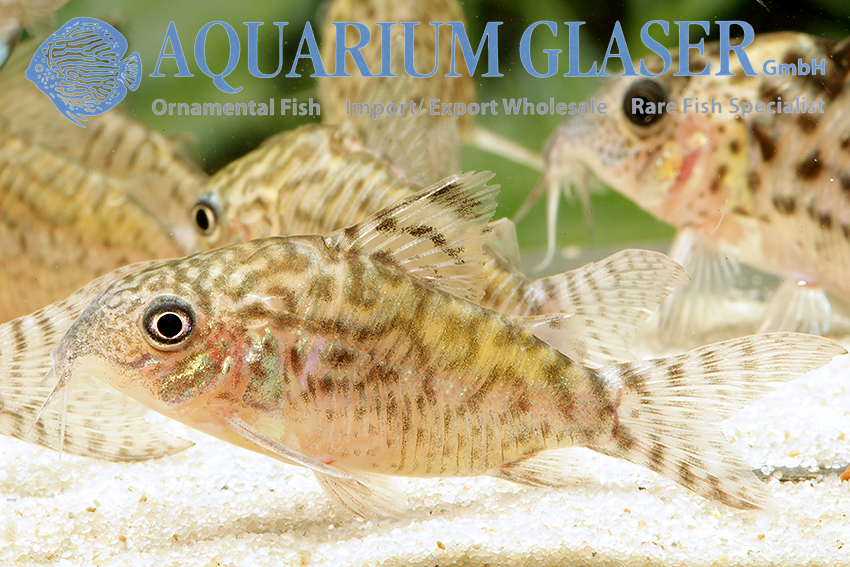
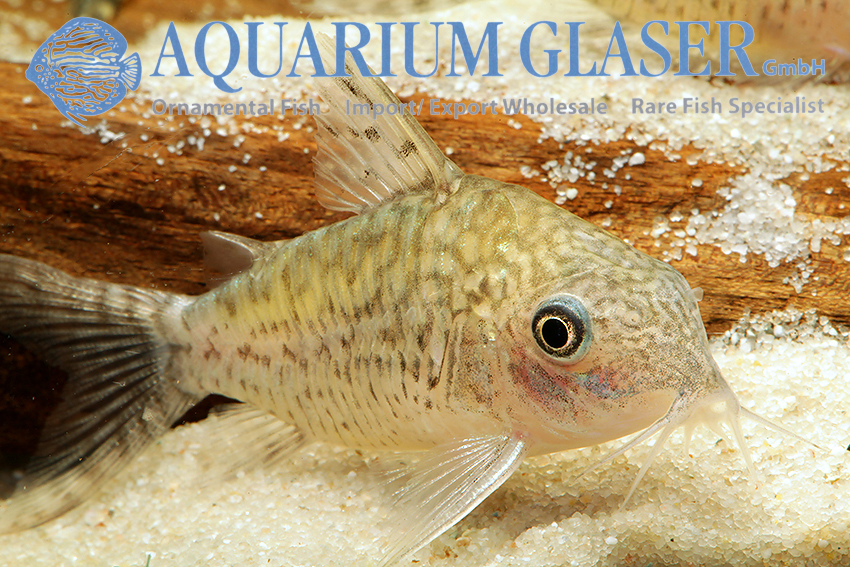
This post is about Corydoras sodalis. For reasons that go back to a mistake in the 1960s, this actually hardly to be confused armored catfish is traded again and again as C. agassizii. This is especially difficult to eradicate, because C. sodalis and the “real” agassizii often occur together and are therefore often imported mixed. C. agassizii on the other hand is – also wrongly – mostly called C. punctatus, as well as C. ambiacus, which is furthermore difficult to distinguish from C. agassizii. A real name drama!
Concerning care there is not much to say about C. sodalis, the fish will do practically everything, if you fulfill the basic requirements of Corydoras: no sharp-edged substrate, preferably soft river sand, low-germ water and specific feeding. Corydoras are not scavengers! The water temperature should be between 22 and 28°C, pH and hardness are irrelevant.
The reason why these catfishes evade breeding lies in their natural history. The mass occurrences are most likely nothing more than spawning migrations that take the fish to small, shady tributary streams where they spawn. In the aquarium, they spawn only at night, in complete darkness. And because they are strong spawn predators, there is nothing left of the egg splendor the next morning.
For our customers: the animals have code 221504 on our stocklist. Please note that we only supply wholesale.
Text & photos: Frank Schäfer




